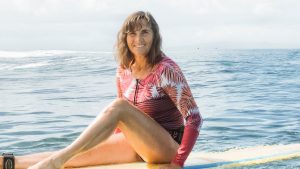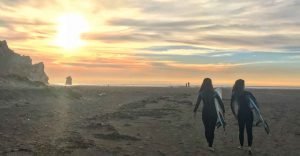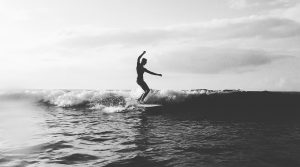
Episode 21: Meet Shell Cleave, founder of Sea Hugger and Former Freelance Technical Writer
This week, I got to meet up with Shell Cleave in Half Moon Bay, California. I had a lovely conversation with Shell about the NGO she founded a year ago, called Sea Hugger.
In this conversation, we discuss the reasons that lead Shell to leave working as a freelance Technical Writer for Silicon Valley giants, and to start a non profit from scratch. Shell has an amazing personality and it’s incredible how much she and her fellow volunteers have achieved in such little time.




